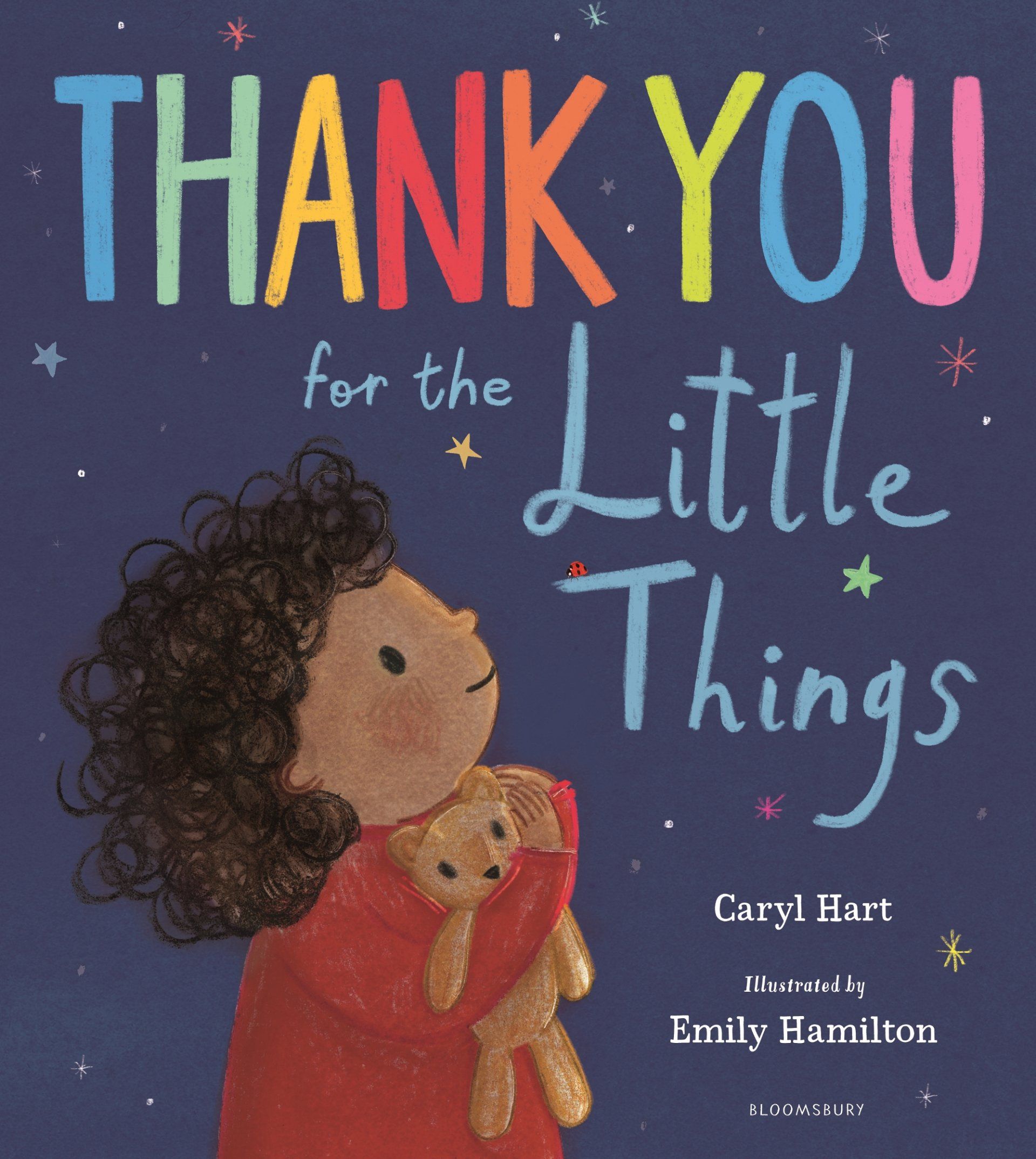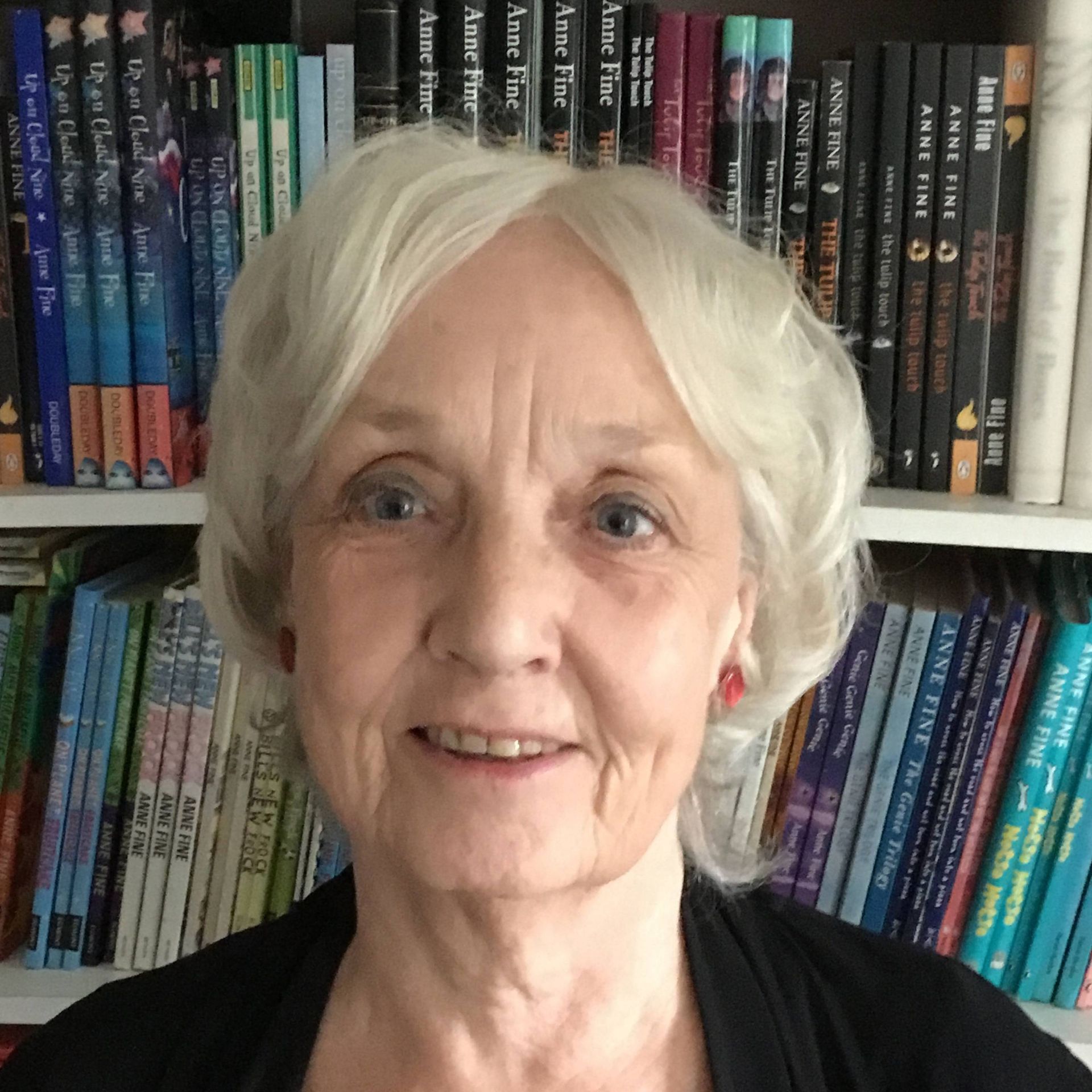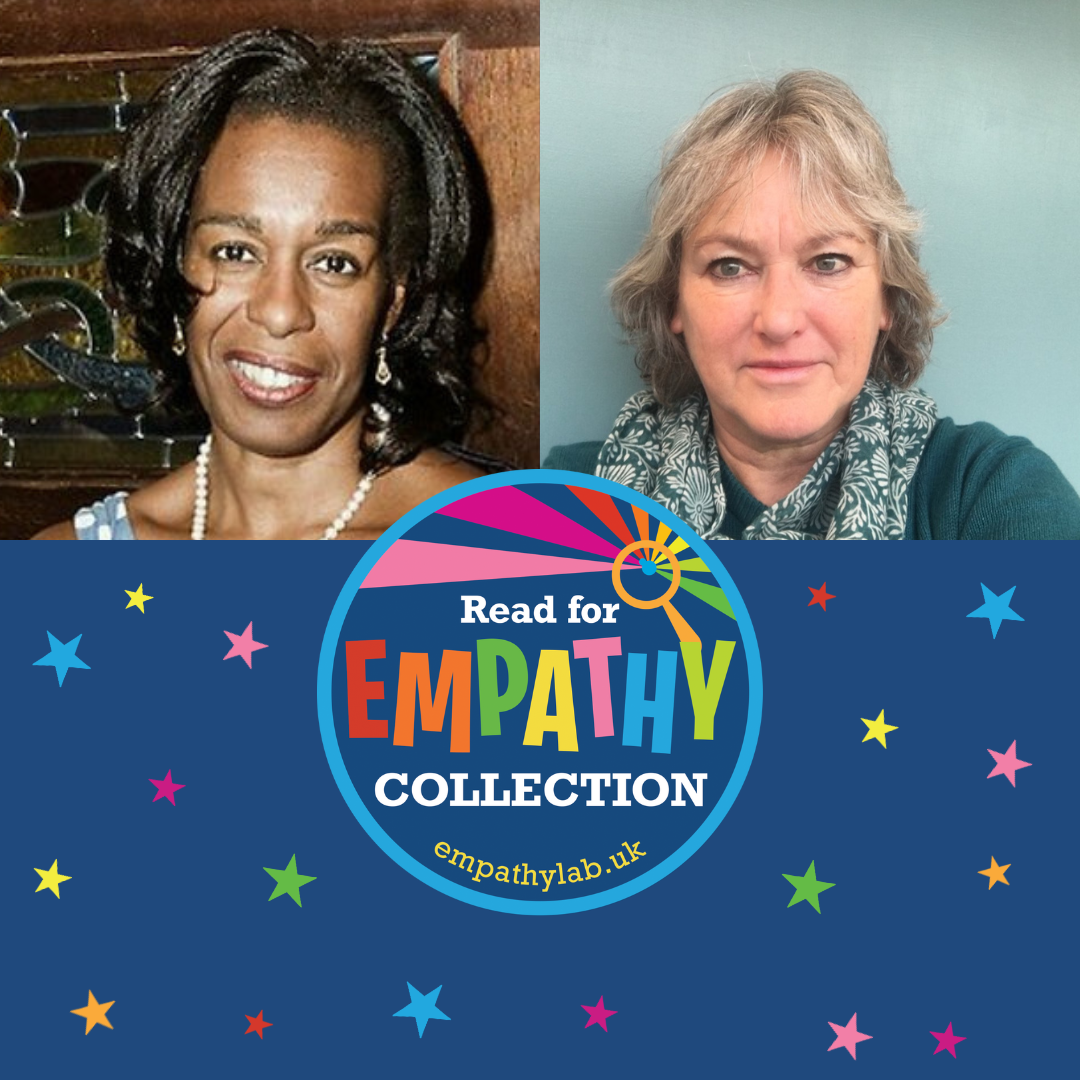Gratitude and empathy
- By EmpathyLab
- •
- 05 Mar, 2022
- •
Miranda McKearney, EmpathyLab founder, on celebrating the little things.

Because of my EmpathyLab work, I think a lot about the different ways a book can be empathy-building, and am very happy that EmpathyLab is a stop on the blog tour celebrating 'Thank you for the Little Things' by Caryl Hart and Emily Hamilton, published by Bloomsbury Children’s Books.
Its central theme is being thankful for the small (but crucial) things in life and as I write this, I’m reflecting that we’ve perhaps never felt more conscious of these in the face of what’s happening in Ukraine.
It seems to me that gratitude has a profound link to empathy and that this gorgeous book can help build children’s empathy skills in different ways.
It opens with a charming central character in a red jumper saying “whenever I am feeling sad or life feels hard or wrong or bad, I focus for a little while…on little things that make me smile”. The illustrations and carefully wrought text help children explore different emotions, and this is a key area for EmpathyLab’s work, because if you can’t identify your own feelings, it’s hard to share and connect with how someone else is feeling.
Gratitude often involves an element of perspective-taking, and this is another area of focus for us. Being able to see other people and creatures as separate to yourself, and to see their different experiences and perspectives on life is a crucial part of empathy. The central character expresses gratitude for a ladybird, a dog, a stick, bubbles that make a little sister laugh, and a teddy bear. The act of being grateful for these things involves being able to see them as separate “beings”, and the book is great for exploring perspective-taking with children
Thank you for the Little Things is a beautiful, gentle springboard for helping children think about their connection with others, and to take notice of what’s around them. We’re so lucky to have books of this quality which quietly help us nurture empathy in the rising generation.
Let’s celebrate the things we’re grateful for
Gratitude is a powerful, healing thing – so let’s all use the book’s publication to celebrate what we’re grateful for. I’m feeling grateful for the primroses in my garden and the fact that spring is unstoppable now
Miranda McKearney, Founder, EmpathyLab

Why has the sheer importance of empathy come to the fore in recent years? Why do we care so much about a concept that had seemed to be left to itself for so long?
Perhaps because there has been so much change and upheaval for our young people in recent years, leaving so many isolated from what we might term ‘real’ contact with others. Lockdown was for many a disaster. The proliferation of phones hasn’t helped. Financially stretched families are often starved of time that can be spent in casual, easy, contact with one another.
So gaining an understanding of others from fiction has become more and more important. Children have always learned from the books and stories they are offered. From the fairy tales, children who lived in an elemental world without luxuries or social safety nets learned the virtues that were so necessary back then to survival: courage, resourcefulness, endurance, quick wits, kindness to strangers.
Our own young people live more tightly under separate roofs, and we have seen the language of books change accordingly - to Mum, the babysitter, playgroup, park, baby sister, Dad’s girlfriend, the bully, happy, worried, sad. It’s the language of relationships and emotions now, and understanding and compassion liberate. They have become the twenty-first century equivalent of Hansel and Gretel’s pebbles gleaming in the moonlight to show the way out of the dark forest.
Frank Flanagan once said good writers “structure, explain and evaluate the experience of childhood and empower the child to come to terms with it. They enable the child to lead a full life."
How? Partly by quite unconsciously increasing self-knowledge and self-awareness. A young reader can’t help but see characters in books unconsciously as if in a mirror. "I'm not like that." "I worry about that too." "I would have been braver”, “slower to catch on”, “tempted to be more mean”. And when this sense comes of no longer being the only one in the world to have this problem, or to feel that way, the child not only comes to realise that they are not alone, but also to gather insights into how other people deal with the same worries or tackle the same problems. In short, they learn, vicariously, how other people tick.
We have so many young people who, it seems, sometimes as a result of their upbringing, often simply by nature, have somehow failed to acquire the tools to begin to think about their own situation. Through fiction they can often begin, safely, to explore the more subtle aspects of life around them - an insight into someone else's life. A child can share desk space with someone else all year and yet learn less about them than about a character in one short book that’s read to them at night. I try to show this in my novel On the Wall , where, over the school year, Finley’s quite exceptional gift for tranquillity and self-acceptance in an anxiety-inducing world causes one fellow pupil after another to look more deeply into themselves, and learn how to rebalance their own way of thinking to become, in the process, calmer, happier, or more accepting.
We all want, for our young people, peace of mind. An excellent start is to explore Lauren Child's wonderful 'Staring into Space' project: https://staringintospace.me/
Then, steep them in fiction. And where better to find the
best than at the EmpathyLab itself?
You can purchase Anne's book, On the Wall,
here

The collection consists of 65 books for 3-16 year olds, each chosen for its unique contribution in building young people’s empathy.
The primary collection for 3-11 year has 40 books; the secondary collection features 25 books for 12-16 year olds.

